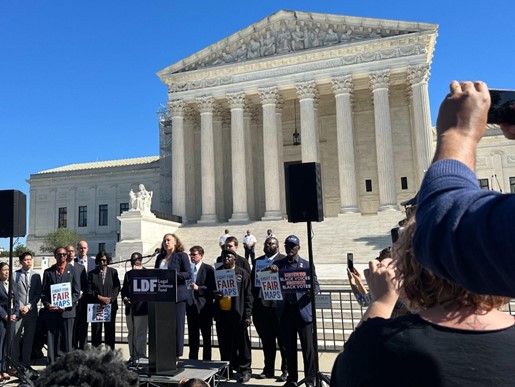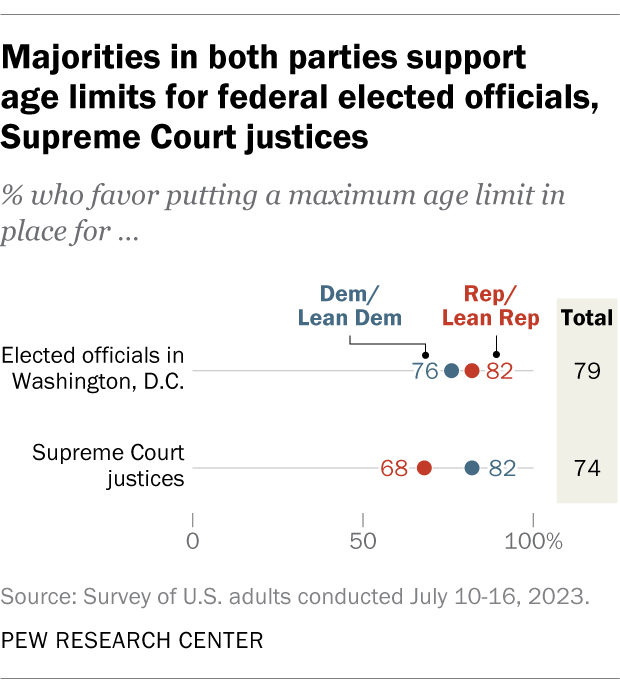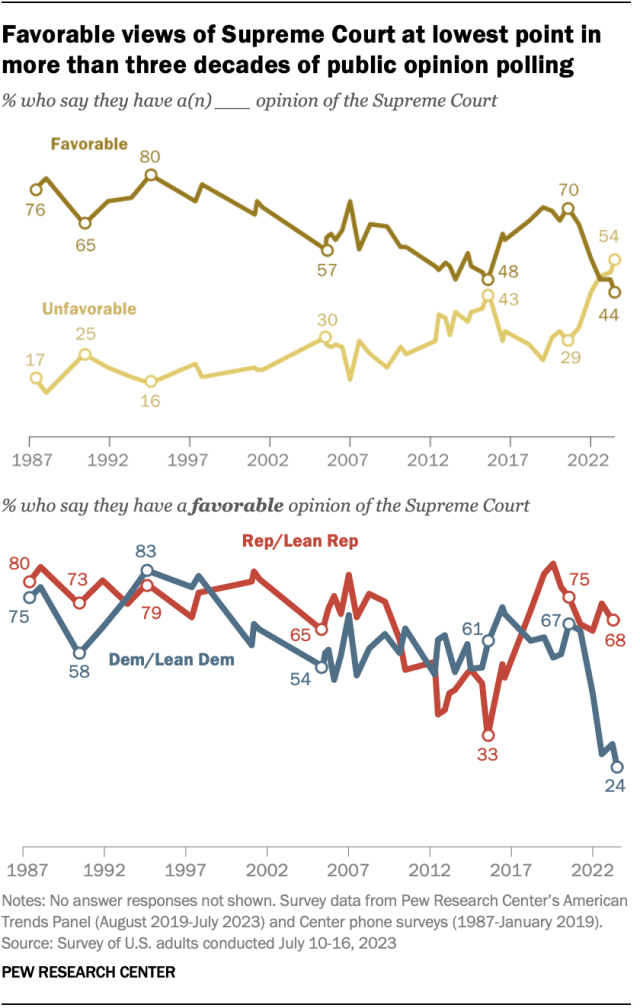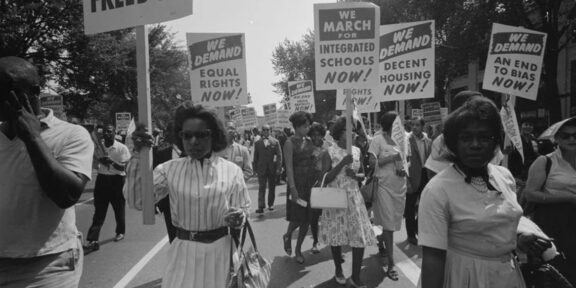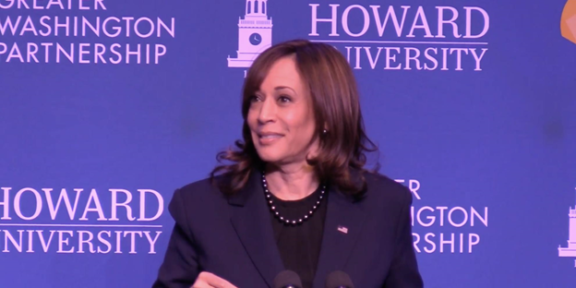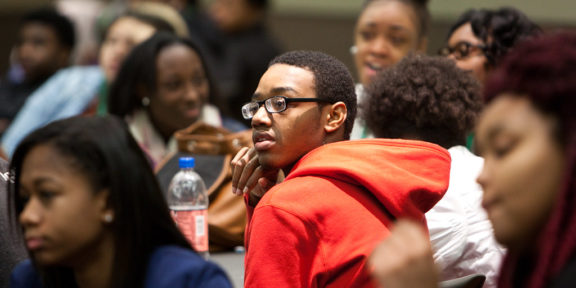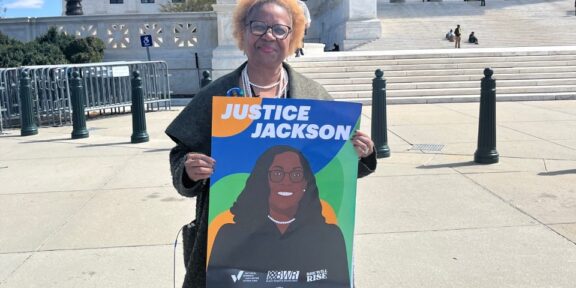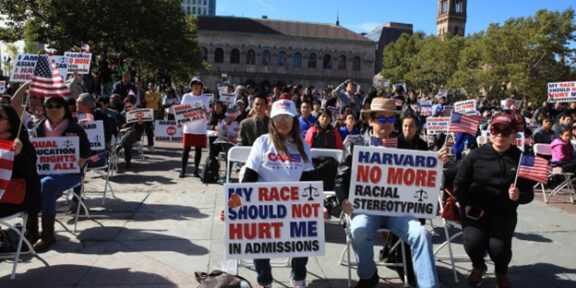By Ebenezer Nkunda
Howard University News Service
As the highest judicial authority in the United States, the Supreme Court is facing increasing calls for reform over concerns about ethical issues, partisanship and lifetime appointments. The chief justice and eight associate justices have the power to mold the trajectory of the nation in their hands, deciding on numerous cases that hold significant impact such as reproductive rights, affirmative action and now voting rights.
During its current term, the Supreme Court is reviewing the matter of Alexander v. South Carolina State Conference of the NAACP, where lower courts had deemed a recently adopted congressional map unconstitutional due to suspected racial gerrymandering. The court is expected to announce its decision on what counts as an unconstitutional gerrymandering;-’ in enough time to prepare for the 2024 elections in November – at the latest during the summer.
The case came from the aftermath of the 2020 census, where it was discovered that the redrawn congressional map had moved tens of thousands of residents from one district to another, disproportionately impacting Black residents by creating an underpopulated 1st District and an overpopulated 6th District.
The South Carolina State Conference of the NAACP responded with a lawsuit, claiming unconstitutional gerrymandering. A panel of three U.S. District judges ruled in its favor, concluding that race had been the primary factor behind the design of the first district, thereby violating constitutional amendments. The U.S. Supreme Court heard arguments on Oct. 11, when South Carolina’s Republican-controlled General Assembly challenged this decision, asserting that its actions were politically motivated, not driven by racial considerations.
Attorney John M. Gore, representing the South Carolina General Assembly, argued that the lower court had erred in characterizing the Republican lawmakers’ actions as unconstitutional racial gerrymandering. He pointed to the blurred line between race and politics in their decision. Gore invoked the precedent set by Rucho v. Common Cause, which permits partisan gerrymandering unless expressly prohibited by a state’s constitution, which is not the case in South Carolina.
On the opposing side, Legal Defense Fund (LDF) senior counsel Leah Aden argued on behalf of the NAACP. She countered Gore’s claims, emphasizing that the district court’s ruling had correctly identified race as the primary driving force behind the gerrymandering.
Aden cited the wealth of evidence and testimonies presented during an extensive trial, which indicated that the legislature had manipulated the boundaries to gain partisan advantage, including the “bleaching” of predominantly Black Charleston County. The senior counsel argued that the move was strategically aimed at preventing the district from becoming more Democratic, as most black people in Charleston are, and led to a significant decrease in the 1st District’s Black population.
During the proceedings, some of the left-leaning justices, Sonia Sotomayor and Elena Kagan, expressed uncertainty about the South Carolina counsel’s request for the Court’s intervention in response to alleged errors made by the lower court, deeming the argument weak. Justice Ketanji Jackson Brown suggested that finding clear error in the lower court’s ruling for South Carolina might be plausible if there were no findings and substantial evidence regarding the state’s actions of sanctioning a map with racial considerations.
Justice Samuel Alito was assertive in his questioning of the Legal Defense Fund attorney, directing more than half of the questions at her. He also focused on the constitutionality of the map, citing his knowledge and familiarity with the mapmaker responsible for drawing the new South Carolina congressional map.
On the other hand, Justice Clarence Thomas gave the appearance of being disengaged. Thomas, who has a history of not speaking at all during arguments, leaned far back in his chair, almost as if he was taking an afternoon nap on a living room recliner. This raises questions about the appropriateness of such actions, or inactions, particularly when parties are allotted only 30 minutes to make their case.
Many people aspire to argue in front of the justices and dream of such an opportunity. Before the commencement of oral arguments, a group of attorneys is introduced and granted admission to the Bar of the Supreme Court of the United States. During this process, one attorney had a touching and joyful moment as he introduced his wife, marking a heartfelt occasion in the most esteemed court in the land.
However, the scene outside the Supreme Court building is quite different, evoking mixed emotions.
Standing outside the Supreme Court building is Robin Galbraith, a mother of two, who is in her 95th day of protesting. She stands in front of the Supreme Court daily, hoping to raise awareness about the necessity for reform and advocating for stricter limitations on the justices.
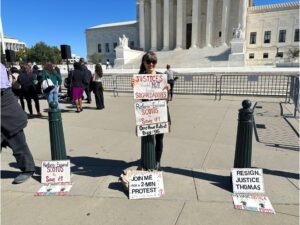
Earlier this year, ProPublica published a report disclosing Crow’s gifts to Thomas. These gifts included trips on super yachts, frequent flights on private jets and extended vacations at private resorts. Notably, inside one of Crow’s residences hangs a mural featuring close friends, depicting the billionaire and Crow.
The Ethics in Government Act mandates that high-level federal officials must publicly disclose their financial history to make sure those upholding the constitution are doing it with integrity. Thomas has since maintained that he has adhered to the act’s requirements. He has issued a statement defending hospitality from his friend, asserting that it is not obligatory to disclose such matters under the law. According to a Propublica report, Justice Thomas complained about his salary to a Republican lawmaker and expressed that the salary given to Supreme Court justices may lead to resignations if there isn’t a raise soon. In the following years, that is when Thomas received gifts from Crow and expenses paid for by other friends and high-earning acquaintances.
The limitations of the Supreme Court are constantly questioned. As high-level officials with lifetime appointments, only one justice has been impeached since 1805. According to a Pew Research Center Study, 74% of Americans favor having maximum age limits for members of the Supreme Court.
“Lifetime appointments are crazy,” says Aaniyah Hicks, a law student studying at the University of California-Berkeley, who doesn’t have the dream of serving on the Supreme Court, nor arguing in front of them.
This first-year law student says the public should have a say in the selection of individuals who wield significant power, especially those who interpret the Constitution. Questioning the legitimacy of the current system suggests that it’s crucial to investigate the personal relationships of influential public figures, such as Supreme Court justices, given the substantial power and public responsibility they hold.
“The system itself is corrupt, so I can’t sit here and say that nothing is happening,” the student said. “However, I also believe that people have lives outside of their careers. Justice Thomas is on such a high pedestal and wields immense power, so we should be privy to all the relationships that justices have.”
Nadine Cyler, 58, stood outside the Supreme Court to express her support for the Black community in South Carolina, believing that the laws in question are aimed at diminishing Black voting power in the country, ultimately perpetuating the power dynamic in favor of the majority.
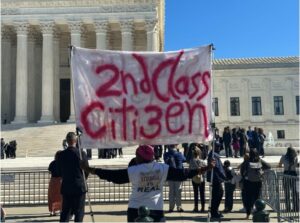
With a sign reading “2nd class citizen” on one side and “SCOTUS is illegitimate” on the other, Cyler stood outside the building to express her doubts and concerns. She questioned the legitimacy of the South Carolina General Assembly and those overseeing the case.
“It’s convenient for white men who wield all the power and enact various covert policies and laws to maintain their hold on power to dismiss other groups by asking, ‘Why is it always about race?’ when it is always about race,” Cyler said. “Every time people secure a policy or law that grants them a right, you find a way to create another law or policy to strip away that right to keep power in the hands of white men.”
Following oral arguments, the Legal Defense Fund held a press conference joined by plaintiffs from the Alexander v. South Carolina Conference of the NAACP case, reaffirming their belief that the voting rights of Black South Carolina residents are being impeded based on race.
Adriel I. Cepeda Derieux, deputy director of the ACLU’s Voting Rights Project, stated that this is a “textbook” case and that the Supreme Court will rule in their favor.
As the Legal Defense Fund continues to champion the rights of marginalized communities and the importance of fair representation, the Supreme Court’s ultimate decision in the Alexander v. NAACP case remains eagerly anticipated in the coming year.
Ebenezer Nkunda is a reporter for HUNewsService.com.

